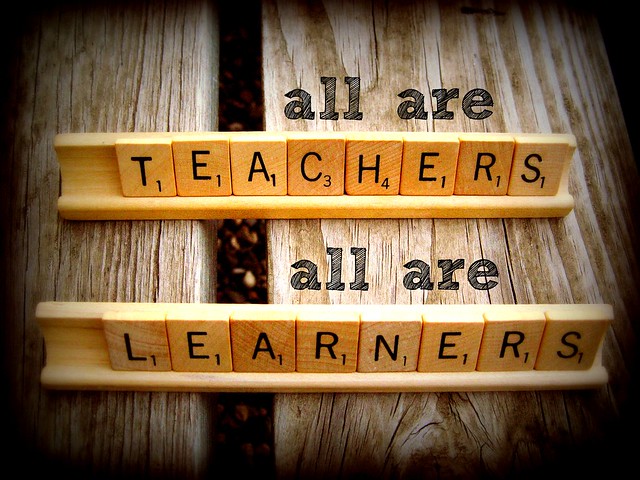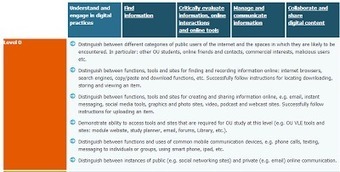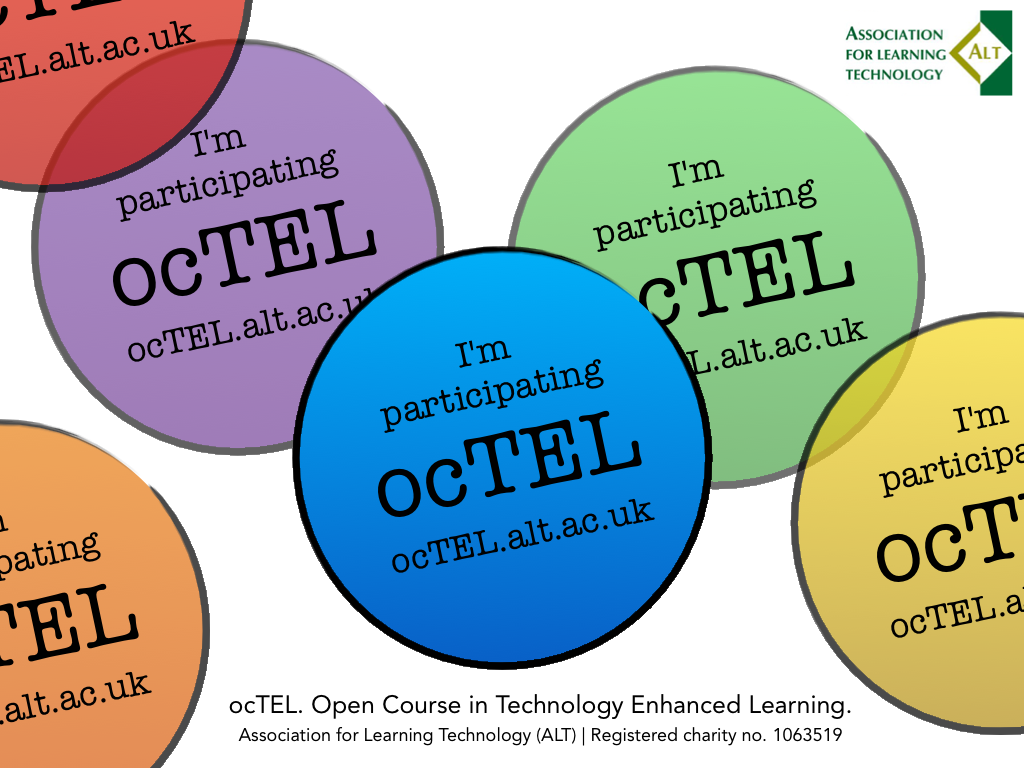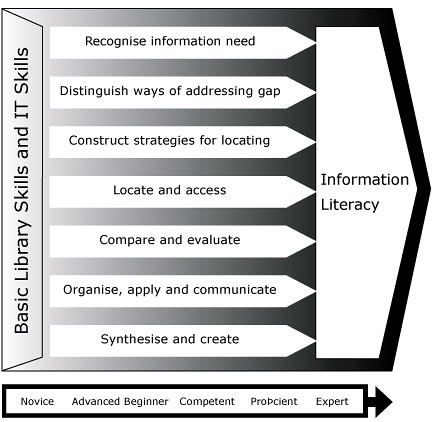Looking at understanding the learners’ needs and the additional demands/contexts that Technology Enhanced Learning brings with it.
Storified by Elizabeth E Charles ·
Thu, Apr 25 2013 01:36:59

So some of the key issues we’ll be thinking about are:
* technical competence and a set of aptitudes often bracketed together under the ‘digital literacy’ heading;
* language and culture, from understanding of the jargon of a domain
to different cultural norms about interacting with individuals and
groups via the medium of technology;
* individual sensory, motor or cognitive impairments that affect what is accessible via technology;
* learning preferences and disciplines, such as the ability to schedule self-paced learning.[1] [
#ocTEL]
Prepared for online learning…are you sure…have you checked?
ACTION: Complete two/three self-assessment questionnaires and list their common characteristics.
I completed the following questionnaires:
Penn State University: Online Readiness Assessment Scored 56
San Diego Community College: Online Learning Readiness Assessment Scored above 45
University of Houston: Test of Online Learning Success Scored 211
Themes
A list of some of the characteristics that are common to all three questionnaires:
* Asked about the personal motivation for undertaking the course via this method
* Checked the learning style, reflective, participatory, kinesthetic and ease with modes of delivery face-to-face, audio-visual, textual
* Checked previous experience of using forums, emails, online discussions, communication with other
* Checked awareness of time needed each week/supportive environment/space to study
* Asked if self-motivated re will keep on track and not fall behind as an independent learner even when subject becomes difficult
* Time management – deadlines and organisation skills
* IT skills – use of PC (emails,internet, file management, updating software), hardware support keyboard/mouse and if something goes wrong (business continuity),
* Academic skills – from ability to read instructions, express oneself in writing etc.,
THOUGHTS
It was
interesting to complete these questionnaires when I am already
undertaking an online course and it really made me think about what was
required from me regarding equipment, motivation, organisational skills,
digital literacy and time.
I
think it is very important that learners understand what participating
in an online course will entail. It is quite interesting that for most
students this level of information is not communicated for traditional
face-to-face courses; well certainly not from my experience of
education. There is an assumption that the learner ‘knows what is
involved’ without it being explicitly expressed. Much of the checking is of previous
knowledge/expertise of wide range of IT issues – ones that would
normally be addressed and support provided as and when they arise if the learner was being
taught on campus. The questionnaires are used as a device to re-orientate
the student to this way of learning and where necessary to provide an
opportunity to address skill gaps in a formative approach that will equip
the learner with transferable skills.
Yes the test did accurately
identify my readiness to participate on an
online course. So for a learner where it identified they were not, I
would hope that the advice or suggestion that both San Diego and Houston
provided would be acted upon. Of course all of this only works if the
student is honest/realistic in their responses and don’t over estimate
their abilities when completing the questionnaire.
This is a great way of ensuring that students really do understand what
is required from them and to ensure that the infrastructure is in place, if you will, to underpin
their studies in this medium. The checking for readiness is is not
something I had considered before but I can see how helpful it would be,
especially if one wants to improve retention rates. The more basic
issues/skill sets can be dealt with before the course begins the better
the outcome for the learner. Having students coming new to a
topic/subject/discipline whilst also trying to
become familiar with a new way of studying is like setting them up to
fail with two fences rather than just one to clear!

Activity 2.1. Learners expectations
Find a colleague or someone else
you know who has limited experience of online learning and TEL and
discuss the topics with them. I discussed the ‘readiness’ questionnaire themes as identified above with a colleague who has not participated in any TEL courses.
Ready to engage with TEL? Answer: NO.
* Motivation: Easier to give up when it becomes really difficult because there isn’t personal contact and easy to ignore communications by emails
* Learning styles: Having to wade through all of the various blogs and forums would be off-putting even though this in some ways replicates interaction in the classroom as well as active participation in others learning
* Time management: Although good at time management felt sure the estimated amount of time required would need to be trebled to be more realistic
* IT skills & experience of using forums, emails etc: Didn’t have much confidence as seemed too much to wade through in the various forums and Google+, etc, very overwhelming. Wasn’t keen to participate in TEL course before this but even less so having seen what it actually entails. One was asked about whether you used email but the use of various social media and different applications went far beyond normal emailing.
* It was good that the questionnaire was used but it in no way prepared you for what would actually be needed.
Expectations and concerns?
* Expected courses to be more structured and study areas in ONE place (like VLE possibly)
* Expectation of TEL was low but seeing the lack of structure and flexibility in the number of routes that can be employed even lower as it would be completely overwhelming for a first timer
* Main concern would be the amount of learning required to use the various social media BEFORE starting the course and to use them whilst studying the materials on the course
Resonate with my experience?
Some of these concerns are ones I had when I did my first MOOC, EDCMOOC and thankfully have not been replicated on this course, but I can understand how daunting it must be. By providing enough time in advance for the learner to become familar with relevant social media and the different way the teaching/learning space is structured online, concerns can be addressed and mitigated and expectations managed – in other words “week zero” on a longer timeline.
Only two elements resonates with my experience: (1) the number of social media that one has had to start using and, (2) the amount of time I spend on this course far exceeds the stated 5 hours per week. If I had a larger number of other projects on the go I would not be able to cope. On the other hand the advice given – to focus on my big question and be selective has helped me to manage my expectations and how much I put into this course.

Activity 2.2. Researching themes in Learners’ need
I have considered two of the four themes:
* The nature of adult learning and implications for practice (tags: ocTEL, #adultlearning)
* Implications of digital literacy (tags: ocTEL, #diglit)
Share what lessons you take concerning the theme, and how you would apply them to your own teaching and learning practice.
Cercone[2] and Shank[3] are very clear as to the approach that should be adopted for adult learners see my precis in the tweet below.
Taking this on board I would apply this to my teaching for both adult learners and teaching digital literacy by:
* Explicitly linking e.g. information research skills being taught to other uses than just for academia,
* Encouraging learners to share their experiences good and bad,
* Using group collobaration whilst working on problem based exercises.
In online delivery this would mean providing readings and handouts before the actual session, getting students to use a reflection log to self-assess themselves before and after the skills session, and provide differentiated pathways through the topic being covered.
The provision of a varierty of problems to work on but ensuring that the ‘tell, show and do’ principle is followed is essential for digital literacy – I just need to provide a wider range. The need to organise learning in chunk-size is hard as I do have the tendency to try and cram as much as possible into the one session. Providing the scaffolding for skills that may be new whilst ensuring I provide time for experimenting, reflection and explicitly mapping out how these skills can be used in other aspects of their lives will ensure that I achieve the learners’ need in both themes.
#ocTEL #adultlearning posit skills/theories as to their use at work or personal life where possible, whilst drawing on students’ experiences
Tweets on thoughts on themes for application
Tell, Show, Do, Apply: The Anatomy of Good Instruction | @scoopit sco.lt/8vNjzl #edchat #libchat #infolit
RT @ElizabethECharl Digital and Media Literacy: A Plan of Action | KnightComm | @scoopit sco.lt/4pvVs9 #diglit #edchat #ocTEL
#ocTEL #adultlearning Andragogy appealing to mature learners and instruction best practice http://bit.ly/ZdrbsV
#ocTEL #diglit Move focus from skills to literacies. Skills + community= social media. Plus awareness of the continnum of fluency- Rhiengold
For new ocTEL resources see Diigo ocTEL Group entries.












